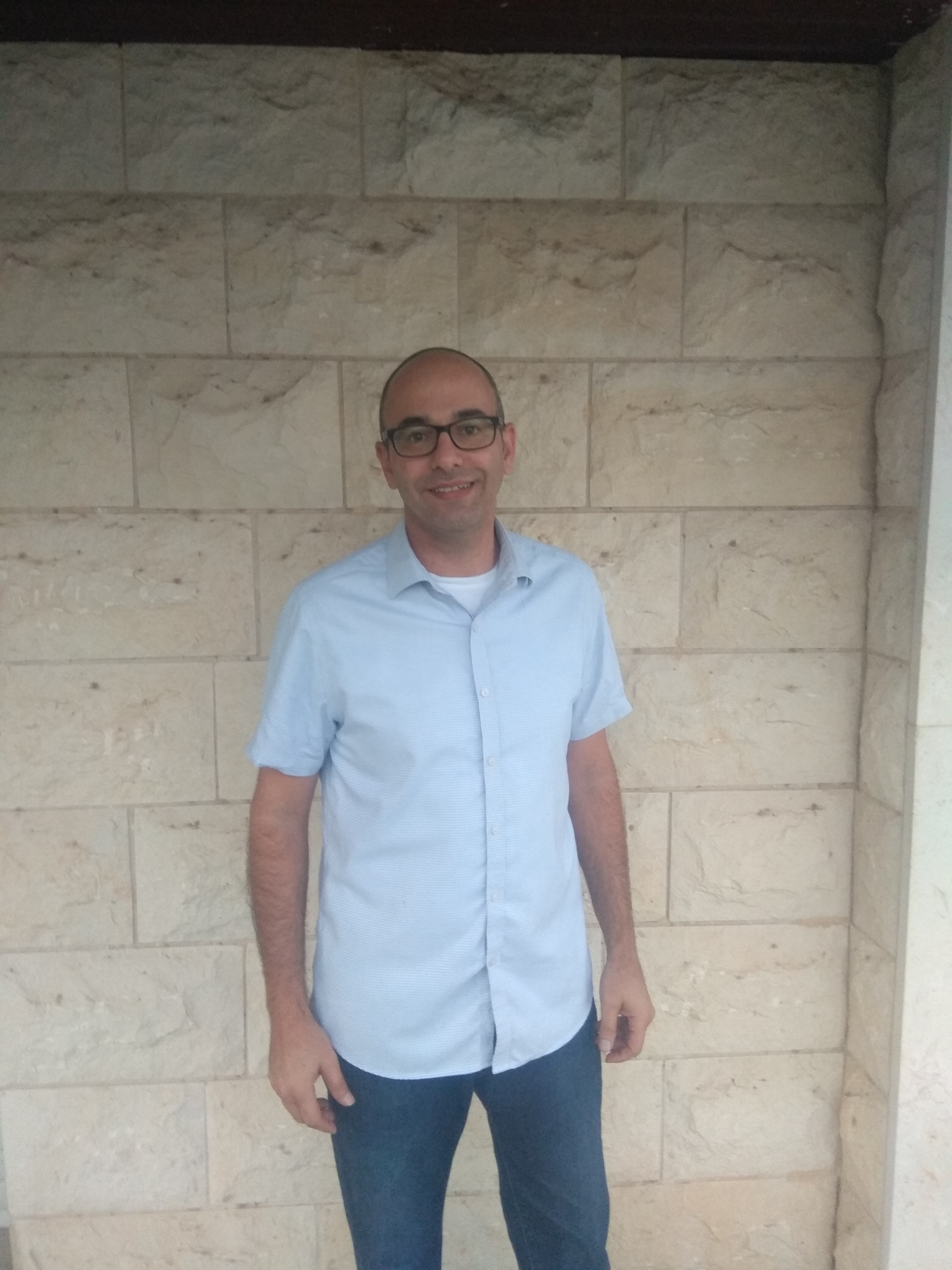The Engineer Pleads: 'Help Me Find the Friend I Ostracized Over 30 Years Ago'
A Hidabroot reader who encountered an article we published recently reached out to me with an emotional letter asking for help locating a classmate whom he and others ostracized more than 30 years ago. Do you know Eli?

A letter reached me from a Hidabroot reader named Shacham Levy - an engineer and computer architect at a large technology company - which left me speechless after reading just the first few lines.
Shacham (50) wrote this letter in response to an article about a single individual pleading for empathy, sharing a similar story that occurred about 30 years ago in his own classroom.
"Shira Shalom," he begins. "I am ashamed and embarrassed to write this. My name is Shacham Levy, I am 50, married with five children, and a computer engineer. For over 30 years, I have been searching for a friend named Eli K. from Kiryat Ata, who was my classmate at the 'Tikva-Yaakov' boarding school in Sde Yaakov during the 80s. He was an orphan of a father, and I, along with my classmates - except for one friend named Avshalom - ostracized him. We didn't talk to him, didn't sit next to him, and simply ignored him. Since then, I have been searching for him, but his common name makes it difficult. Everyone knew, the teachers, the educators... it's unimaginable. I tell this sad story every Shabbat at the dinner table to my children, and each time I tell it, I realize how I have no forgiveness."
"I Don't Know If I'm Forgiven"
At this point, great pain pours onto the page, which Levy does not hide. Even though he volunteers as a lecturer on Bible, computers, and information security at schools, he includes messages of support and awakening on ostracism and exclusion in every lecture.
The pain is alive and kicking, reminding him of the sin with every breath, and the regret for that despicable act is immense. "True. We were 16, and I was one of 30 students. But I could have made a difference. It eats me up inside, and I worry there is no forgiveness for our actions."
Eli K. from Kiryat Ata endured two years of humiliation and bullying from his classmates. Two years of harsh ostracism that the entire educational system was aware of and regretted, but no one among the staff intervened or acted. "They are teenagers, it will pass...", they probably thought.
"People ask me, 'What will happen if you meet him: what if he forgot the whole story?'" Levy continues. "I admit I have no answer other than an overwhelming desire to tell him that not a day passes without me thinking about it. I don't know if I have forgiveness, and I doubt that even if I offered my entire wealth, I could sweeten even one month out of those two cruel years. But I want you to know I think about it every day, every hour. I can't fix the past, but today when I hear about an outcast child, I 'turn over' the school and make sure the child is accepted in class. Unfortunately, there are many such cases."
Suspended from School for a Week and a 1500 Shekels Fine
According to Levy, over the years, endless efforts have been made to locate his classmate to seek his forgiveness, but due to his common last name, all efforts have been in vain. "There was another boy named Eli K. in the class, so we called one Eli K. from Kiryat Ata and the other Eli K. from Beit She'an. We also had a classmate who died with his entire family - eight of them - in 2012."
Why did you ostracize him?
"I remember it was because the entire class decided to strike, and he didn't participate. He was a handsome, intelligent boy. An orphan of a father, and although his financial situation was not great, he was always well-dressed in branded clothes and very clean. I don't remember if the whole class was punished, but I was suspended from school for a week and fined 1500 shekels. When my father came to the school after a week, the teacher and the staff didn't share the real reason for the fine with him.
"They claimed his son 'led a strike and sang Shlomo Artzi during prayer'. As teenagers, everyone wants to be accepted. Many didn't want to be part of the boycott but were afraid and therefore participated, for fear of being ostracized themselves. Although we never committed acts of violence against him, images of him from then haunt me: the gaze of an innocent, clean, orphaned, handsome, lonely, and frightened child are always in front of me."

"Everything You Write About Your Friend or Do to Them - Is Forever"
Among his lectures to students on information security and online dangers, there is no lecture in which he doesn't address additional dangers lurking specifically in 'interpersonal relationships'.
"Today, it's easier to hide behind a smartphone and write slander or intensify the flame," he says. "Adolescence is the time when teenagers shape their lives and personalities, and at this age, they need to be most careful about causing harm.
"I always tell students I lecture to that a true leader helps the weak and fights to protect them. A cowardly leader creates exclusion, but a true leader creates peace - and that's what they should strive for."
What's your message to teenagers who encounter similar situations and are dealing with class exclusion?
"When you're young, you don't feel the weight of it, but I have carried this burden for over 30 years, and I tell you - it's unbearably heavy, and it consumes you slowly from within. As an adult, I understand that this is something I will carry to the world of truth, and my forgiveness doesn't really matter now. What's done cannot be undone, which is why it's important to be careful with what comes out of our mouths and from our keyboards. Everything you write about your friend or do to them - is forever, so it's better that only good things remain."
"I'm Sure Eli Will Read the Hidabroot Weekly Leaflet"
Levy also wishes to convey an important message to the parents: "You are no less responsible. Ask your child if someone in class is being ostracized. Consider if, heaven forbid, it were your son or daughter being ostracized... teenagers may not always be aware that what they write, say, and do - never gets erased. Explain to them, raise awareness, talk about affected children, and be alert to 'threats' that haven't yet materialized."
Levy closes his letter with the words: "I have no doubt that Eli reads or will read the Hidabroot weekly leaflet," adding another detail that might shed light on the mysterious figure of Eli K., whom he longs to meet and ask for forgiveness.
In conclusion, I ask him why he's certain Eli reads the leaflet from Hidabroot, and he replies that he believes Eli remained a religious person, so either he reads the leaflet, or someone who knows him does. "A wide range of people reads the leaflet from Hidabroot. The leaflet is well-written, delightful, and charming, so I truly hope it somehow reaches him."

